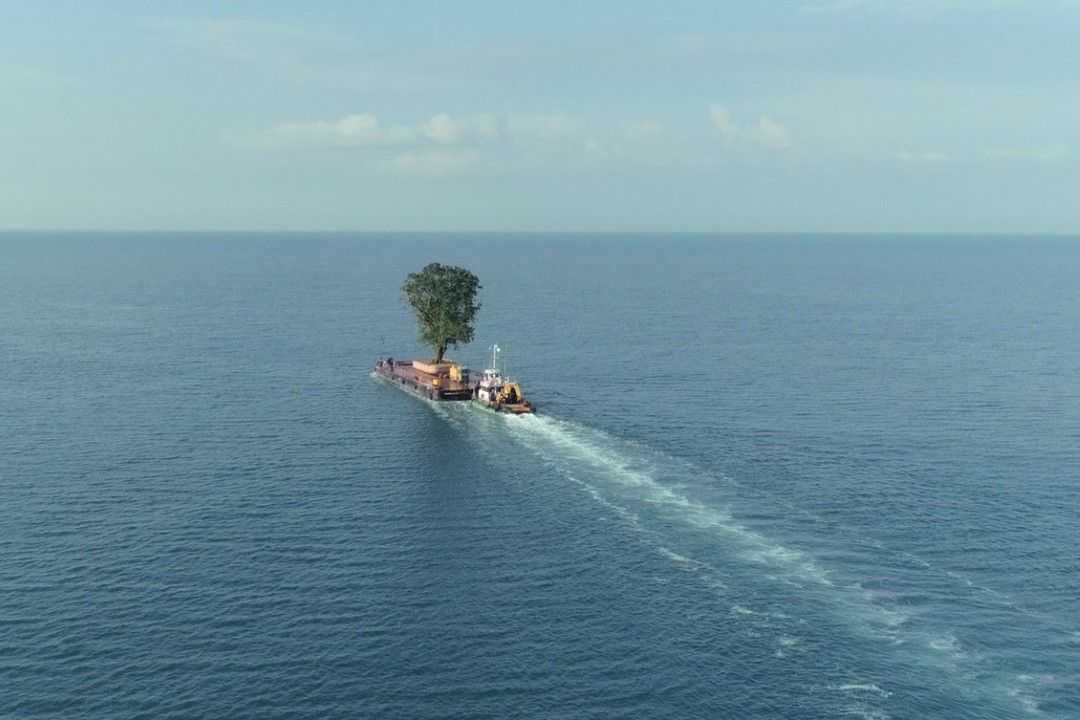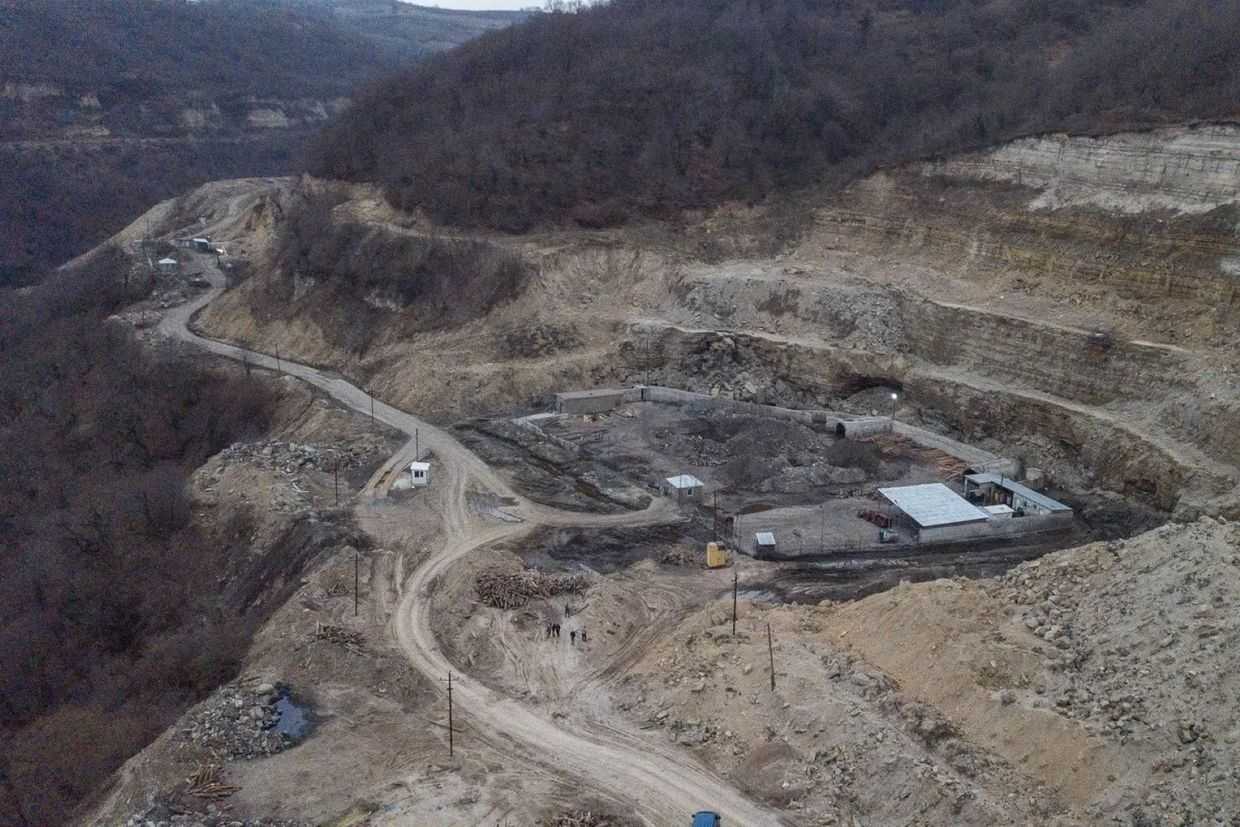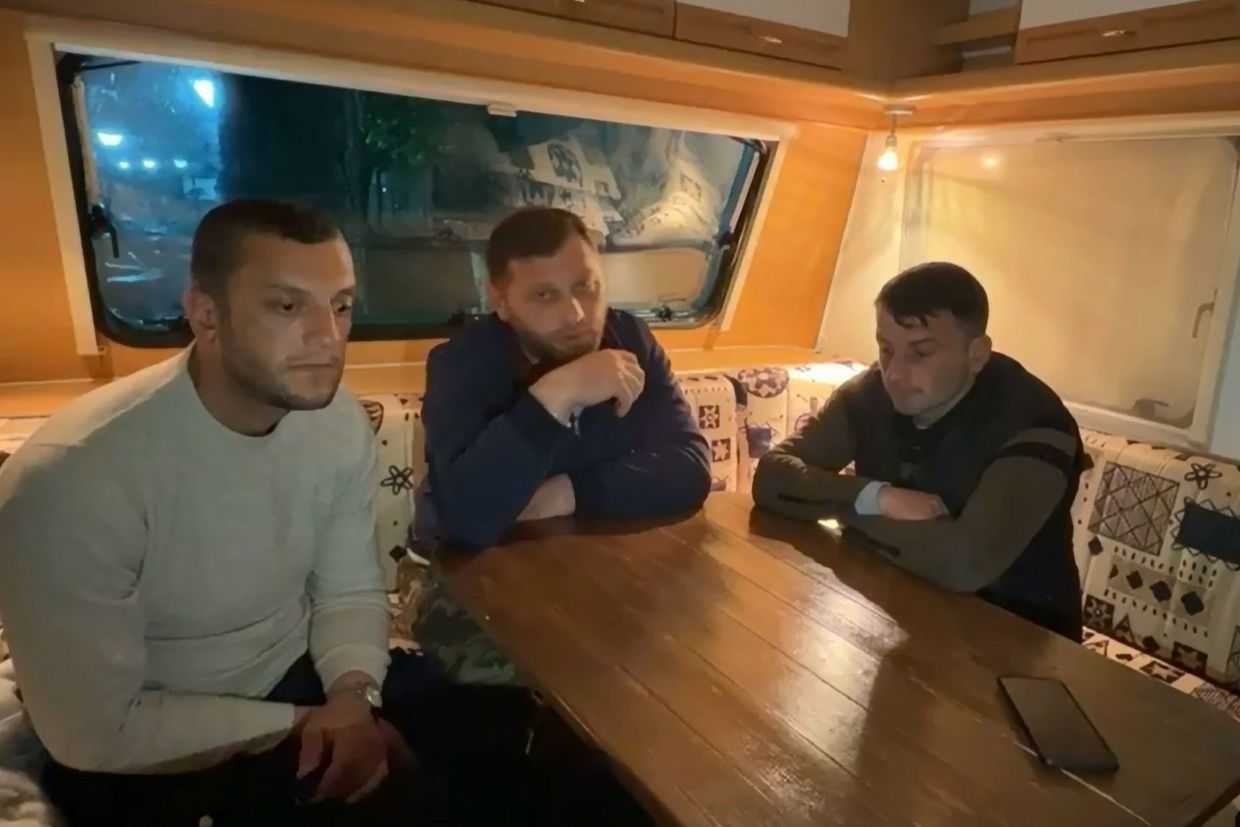
As Georgia’s government promises to resume the construction of controversial hydropower plants (HPPs) in western Georgia, local people remain determined to fight against changes they believe could leave their land and livelihoods at risk.
‘I would have never imagined the topic of its construction would pop up again’, says Magda Guledani.
In March 2018, Guledani was in her third trimester of pregnancy when she lay on the ground in front of construction equipment in the northwestern Georgian town of Mestia. The diggers and bulldozers were travelling to the proposed site of the Mestiachala hydropower plant, to build a 50MW cascade that locals had been protesting against for weeks.
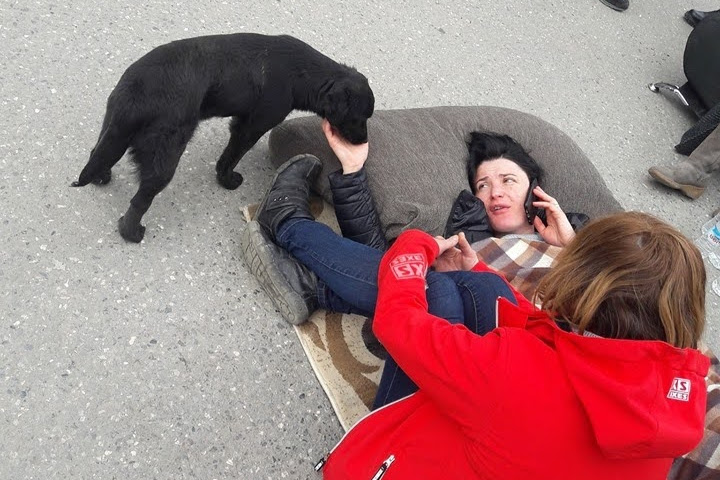
Guledani’s protest made headlines, but failed to stop the bulldozers for long. In the days that followed, the authorities de-escalated and within weeks, proceeded with the dam’s construction under heavy police presence.
But despite their defeat, protesters in Georgia’s north-western region of Svaneti doubled down against any further construction: that spring and summer, the rallies continued. People mobilised in larger numbers and vowed to stop the construction of any additional HPPs in the region, including Nenskra and Khudoni — much larger, dam-based hydroelectric projects south of Mestiachala.
In recent months, Georgia’s government has announced its intention to embark on new energy projects and resurrect previously abandoned, contentious ones.
The government’s promises of more jobs, energy independence from Russia, and chances for Georgia to export its surplus electricity have convinced some Georgians, but predominantly those living outside the affected regions.
Meanwhile, riverside communities living in areas set to be affected by the planned massive hydropower projects continue to raise their concerns about both the immediate impacts — in terms of resettlement — but also the longer-term and further-reaching implications.
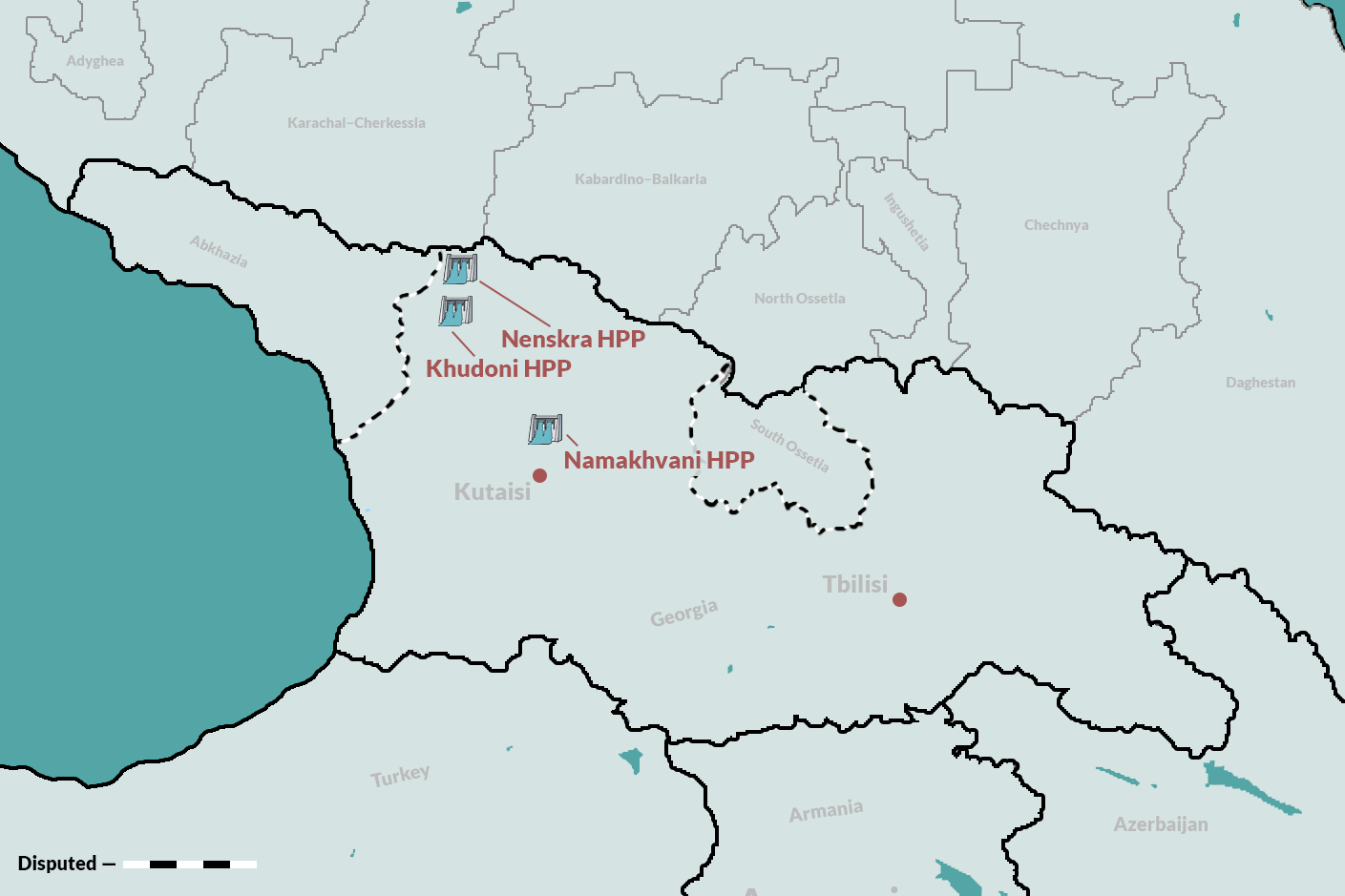
Questions regarding construction quality and safety have been a key concern of those objecting to the HPPs. Questions have been raised about the ability of the structures to withstand time, earthquakes, and possible Russian sabotage.
The environmental impacts have also been widely raised as cause for concern: potential adverse effects on the local environment include increased humidity, higher risk of flooding, reduced access to water, negative effects on local fauna, and consequent impacts on tourism, which tends to be centred on the region’s pristine nature.
In the past year, local people have redoubled their commitment to fighting these projects.
In December 2022, people from Mestia vowed not to allow the Khudoni project to be built, promising that they would hold the oath they had made to religious icons in 2013.
Guledani, who now lives outside of Georgia, similarly maintains that she and her fellow protesters’ commitment to fighting the power plants holds firm.
‘They’ll start [building], and the wave [of protest] will follow again’, she vowed.
Energy independence and cryptomining
While more than 80% of Georgia’s electricity already comes from domestic hydropower production, Georgian leaders have recently echoed European rhetoric on the need to reduce energy dependence on Russia, particularly in light of Georgia’s growing electricity use.
However, much of the electricity that, on paper, is imported from Russia into Georgia is in fact destined for Abkhazia, a region that declared independence from Georgia in the early 1990s. In 2021, for example, 80% of electricity imported from Russia (993 million of 1,245 million kWh) went to Abkhazia.
Some have suggested that the discussion is being used to divert attention from a factor contributing to Georgia’s rising energy demand: unlicensed cryptocurrency mining.
‘I wonder where the industry is that’s currently in need of so much energy’, says Mestia-based Nargisi Niguriani, a veteran community mobiliser against hydropower projects in Svaneti. ‘Do you know where the secret lies? In mining and crypto-currencies. All our “blessings” to whoever invented it! [Crypto-mines] are everywhere!’
Like many Svans, a subethnic group of Georgians in Svaneti, Niguriani says that a state programme giving free electricity to Svaneti since December 2021 did not have its intended effect. Instead, it led to a mushrooming of crypto-currency mining in the region, leading to electricity shortages and intermittent blackouts.
But a government response has been lacking, with the region’s electricity consumption used as justification to push ahead with hydropower plants, while locals are left to untangle the issue through community action.
‘Eventually, people swore on an icon that they would not [crypto] mine’, says Niguriani.
But, particularly in the wake of Russia’s invasion of Ukraine and subsequent embargos on Russian energy exports, the Georgian government has made clear that it sees HPPs as the answer, even if the question remains changeable.
In December 2022, Georgia’s Prime Minister Irakli Gharibashvili stated that Georgia needed to build wind, solar, hydroelectric, and thermal power plants so Georgia could sell energy to the EU, something he claimed would bring in ‘millions of dollars’.
In March 2022, Gharibashvili vowed to implement the ‘big HPPs’, namely Namakhvani, Nenskra, and Khudoni, adding that this would take place ‘only through the participation of the state, so that they belong to our people and our state, and not private investors’.
In a rare point of concordance, Georgia’s opposition has also lent its support to the HPPs. Despite denouncing the government’s implementation of energy projects for alleged corruption, ineptitude, and failing to engage with local communities, Georgia’s pro-Western groups generally agree that the country should seize the opportunity.
Since Russia’s invasion of Ukraine, ‘Russia is becoming more and more isolated, and this is good’, says Petre Tsiskarishvili, Secretary General of the United National Movement (UNM), Georgia’s largest opposition party.
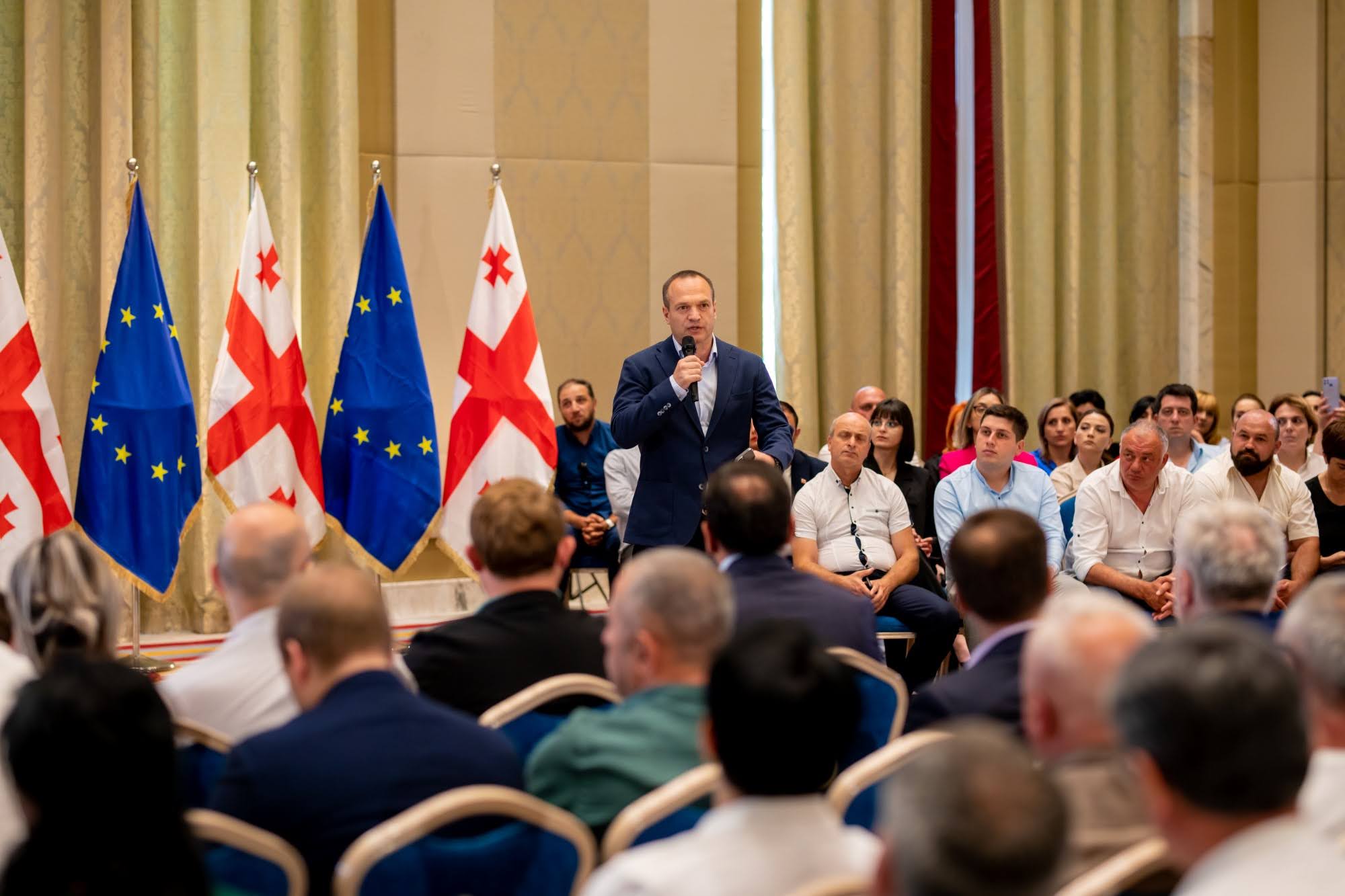
The current opportunity is tightly tied to Georgia’s role in implementing the EU-supported 3GW high-voltage Black Sea submarine electricity cable, which would connect the electricity systems of Azerbaijan, Georgia, Romania, and Hungary.
The European Investment Bank told OC Media that the cable connecting Georgia to the EU had the potential to contribute to ‘mutual resilience’, and would allow Georgia to export green energy from the South Caucasus to Europe. They added that it was ‘one of the flagship projects’ in the EU’s Eastern Neighbourhood Economic and Investment Plan.
Tsiskarishvili states that the EU is currently looking to ‘other places’ where they could buy energy.
‘One such place at this time is Azerbaijan. When Georgia becomes an energy producer, Georgia could also join the party’, he notes.
False promises and riot police
At present, Georgia imports energy to make up a shortfall between its production and usage. In a low-emission development strategy adopted in 2023, the Georgian government notes that Georgia’s ‘technically available’ hydroelectric potential is 50 billion–60 billion kWh, while the country uses ‘only about 20%–22%’ of this.
Many have noted, however, that accessing the remaining 80% of Georgia’s hydropower potential may be less straightforward than the government would like to suggest.
Following Russia’s invasion of Ukraine, the EU’s swift move away from Russian fossil fuels and towards renewable energy generation led to a risk of relaxing some environmental regulations, including allowing the circumvention of environmental impact assessments of energy generation infrastructure projects, including hydropower plants.
To many environmental activists, relaxing environmental regulations inevitably means losing public control, and a move towards more repressive and authoritarian politics against attempts to exercise it.
For Lela Rekhviashvili, a researcher who studied the anti-Namakhvani protest movement, much of the responsibility for the implementation of such projects lies with international banks like the European Bank for Reconstruction and Development (EBRD) and European Investment Bank (EIB), and their lax attitudes towards the political backdrop of the energy projects they fund.
‘The EBRD and EIB, and more generally, the European Union, in this sense pretends to have democratic accountability mechanisms for projects that could not reasonably be supported democratically because they’re exploitative and extractive’.
The EIB told OC Media that ‘primary responsibility for engagement with local stakeholders on every project lies with the project promoter’ — in this case, Georgia’s government.
And recently, such projects have been attracting significant funding: last year, the European Commission dispersed €2.3 billion ($2.4 billion) for ‘environment and climate action’, including €1.5 billion ($1.6 billion) focused on ‘green transition’.
Rekhviashvili says that, in practice, this means more hydropower projects being implemented in the region in what she describes as a ‘post-war acceleration’ of energy projects, aimed at justifying the construction of the Black Sea submarine cable.
She warns that the EU may be willing to allow for Georgia’s ‘Azerbaijanisation’, meaning a move towards more authoritarian and brutally repressive power.
‘If the European Union lets Georgia slide into this authoritarian fascist state, then it’ll become easier for them to implement big infrastructure projects here’, says Rekhviashvili.
And fears of such repression are not without precedent.
The government has previously relied on a heavy police presence at the site of anti-HPP rallies in Georgia’s Svaneti, Lechkhumi, Racha, and Pankisi regions, and used political pressure against local activists when police presence failed to disperse protesters.
Political pressure has ranged from wrongful firings, with one such case being Magda Guledani’s mother, Nargisi Niguriani, to blockading an entire region, as in the instance of Lechkhumi in 2021.
Niguriani is a protest organiser who said she lost her job as a result of her activism in 2018.
‘They gave us our notices that we were fired right in front of the cameras’, remembers Niguriani, who in 2021 won a court case confirming that the local municipality had fired her on discriminatory grounds.
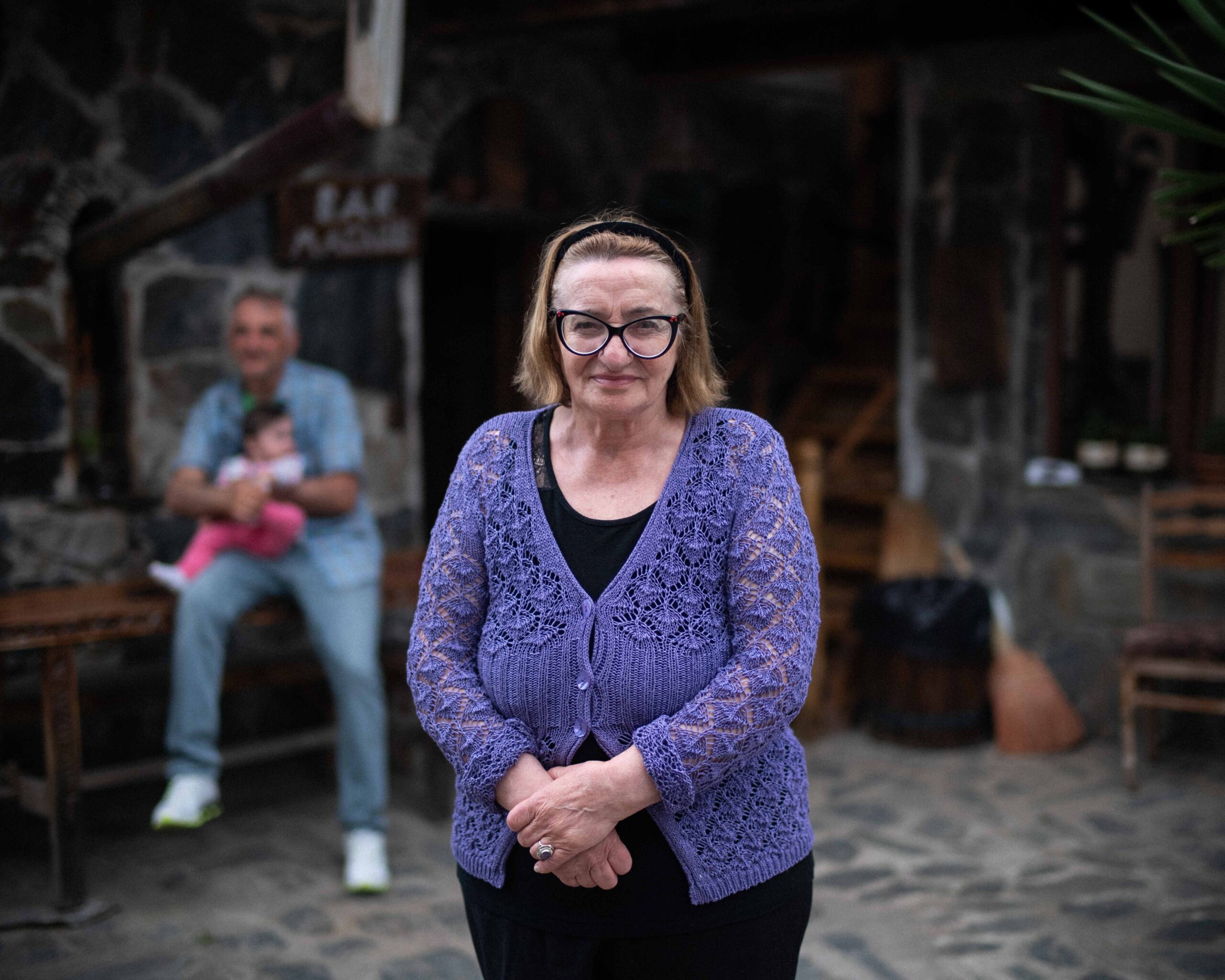
At other times, the Georgian government is alleged to have used indirect manipulation.
In July 2018, several months after Svans unsuccessfully attempted to halt construction of the Mestiachala cascade, the government dispatched over 1,000 riot police officers to the neighbouring Khaishi and Chuberi communities — rising epicentres of the anti-HPP movement — citing a crackdown on illegal logging.
While excessive logging had been a concern for years, many residents stated that tightening the screws was a means to force the inhabitants to agree to hydropower projects, by depriving them of access to a means of supporting themselves.
Khaishi-based schoolteacher Zurab Nizharadze, 56, who got involved in the anti-Khudoni campaign after the Soviet project was unshelved in 2007, states that the previous UNM government also used to intimidate project critics.
‘If the previous government had remained in power, in the best-case scenario, [people opposing the project] would have ended up without employment, in the worst-case scenario — in prison’, says Nizharadze.
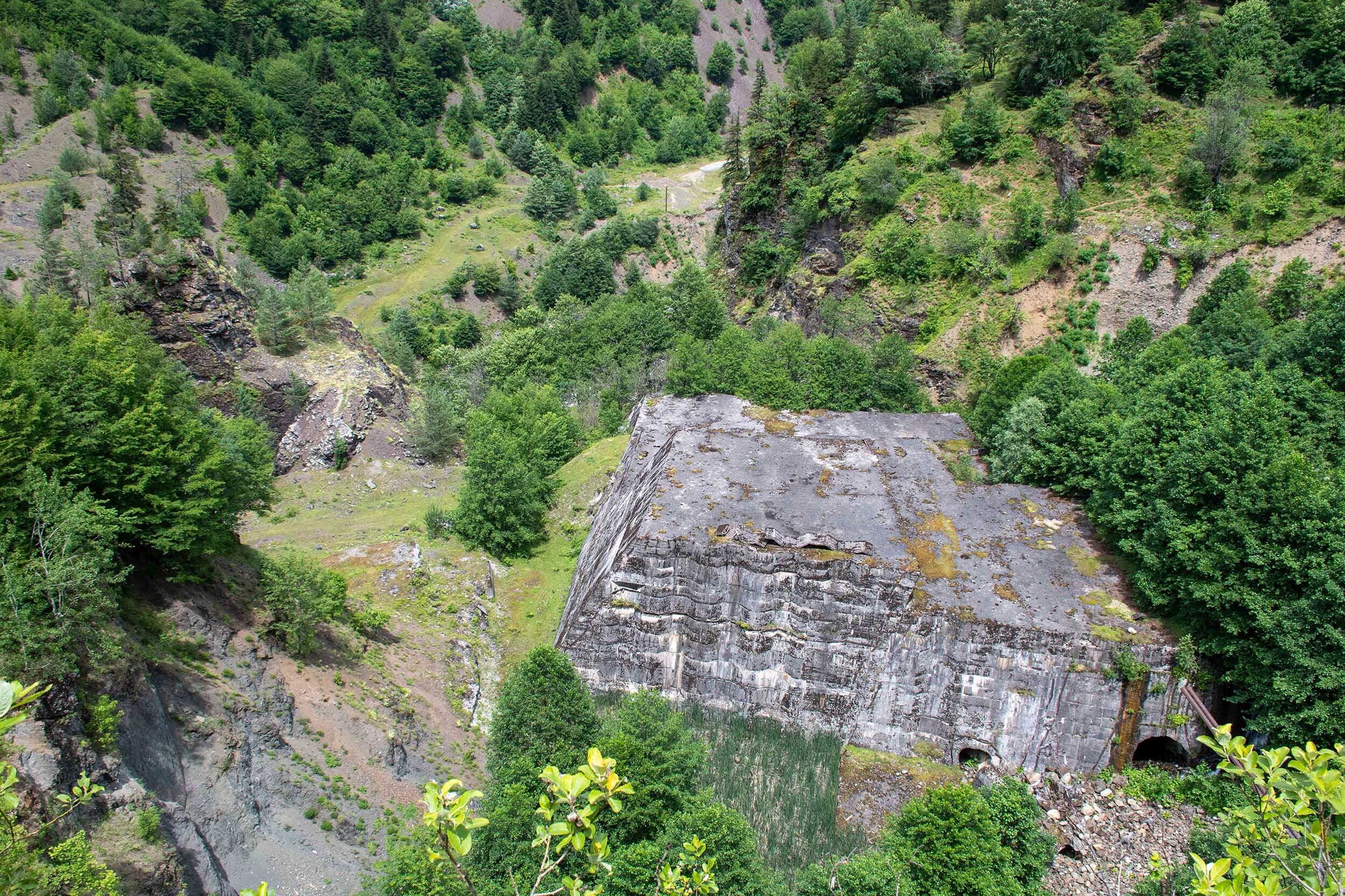
Some, including Nizharadze, see the legacy of these projects and their political push-through as stretching back to their Soviet origins, when hydropower projects were implemented with no engagement with local people, even if their construction meant mass resettlements.
Nizharadze describes the Soviet policy as cynical, noting that Khudoni was the name of a village until it was covered by the reservoir of the Enguri HPP. Now ‘Khudoni’ only exists as a name for another yet unfinished hydropower project conceived under the Soviet Union.
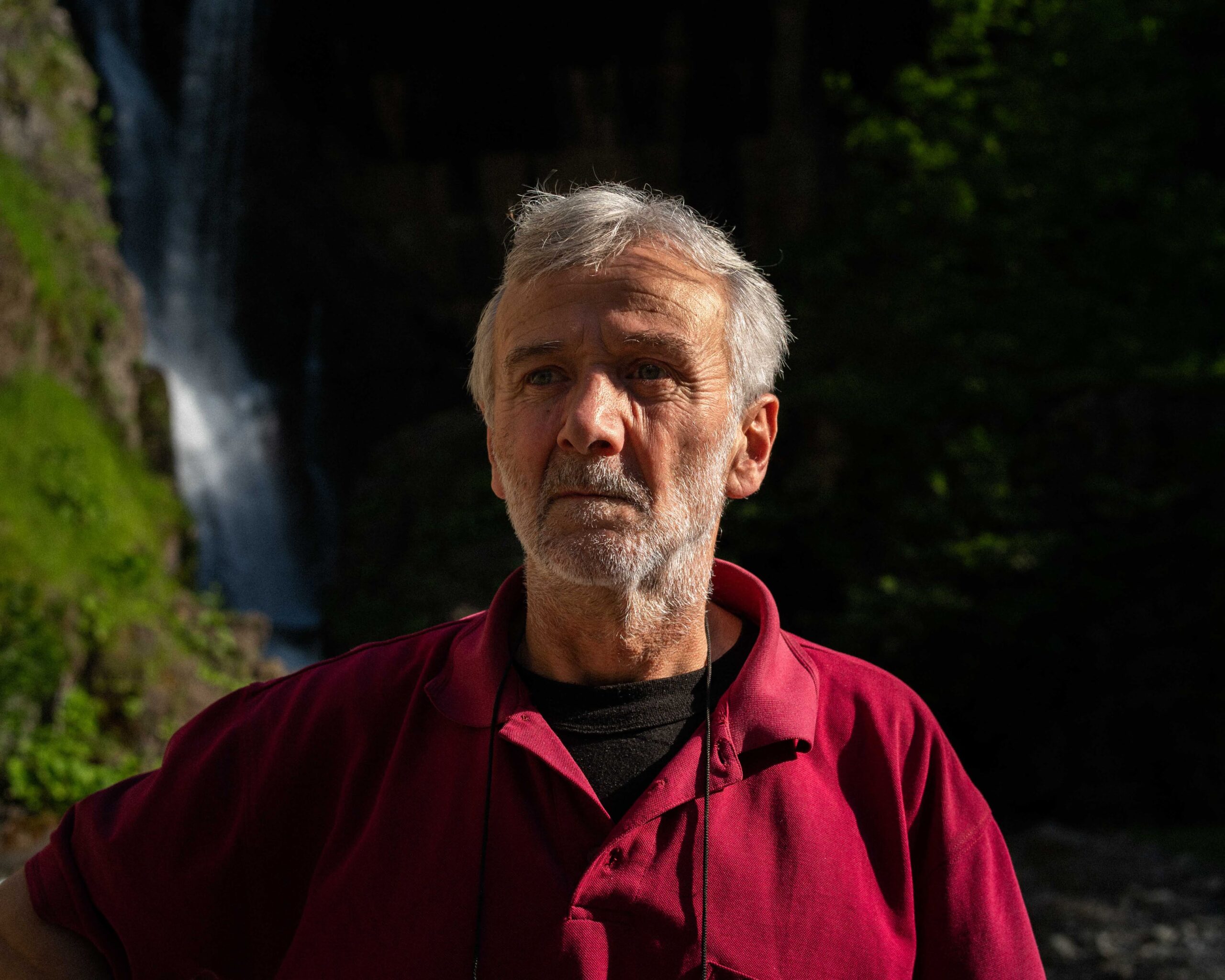
‘They would make the villages disappear, but preserve it by naming an HPP after it’.
‘Who knows what Russia might drop here one day?’
‘It will be like Switzerland if Nenskra will be built, but they have to let them work’, insists Giorgi Abramishvili, executive director of Georgian Renewable Energy Development Association (GREDA), the biggest advocacy group for renewable energy projects in the country. Abramishvili claims that the massive hydropower plant would bring jobs, infrastructure, and economic prosperity to the predominantly rural region.
But Nato Subari, based in Svaneti’s Chuberi community, is not convinced.
Subari has been the principal of the local public school since 1996, but is most known outside the region for her opposition to the Nenskra project since the late 2010s. She has regularly highlighted historical avalanches, landslides, and floodings in her area as significant to the discussions.
‘I’m remembering this because I would not necessarily bet on the quality of the construction’, warns Subari. ‘Construction standards in our country are not on the level that affords one to make comparisons with Switzerland’.
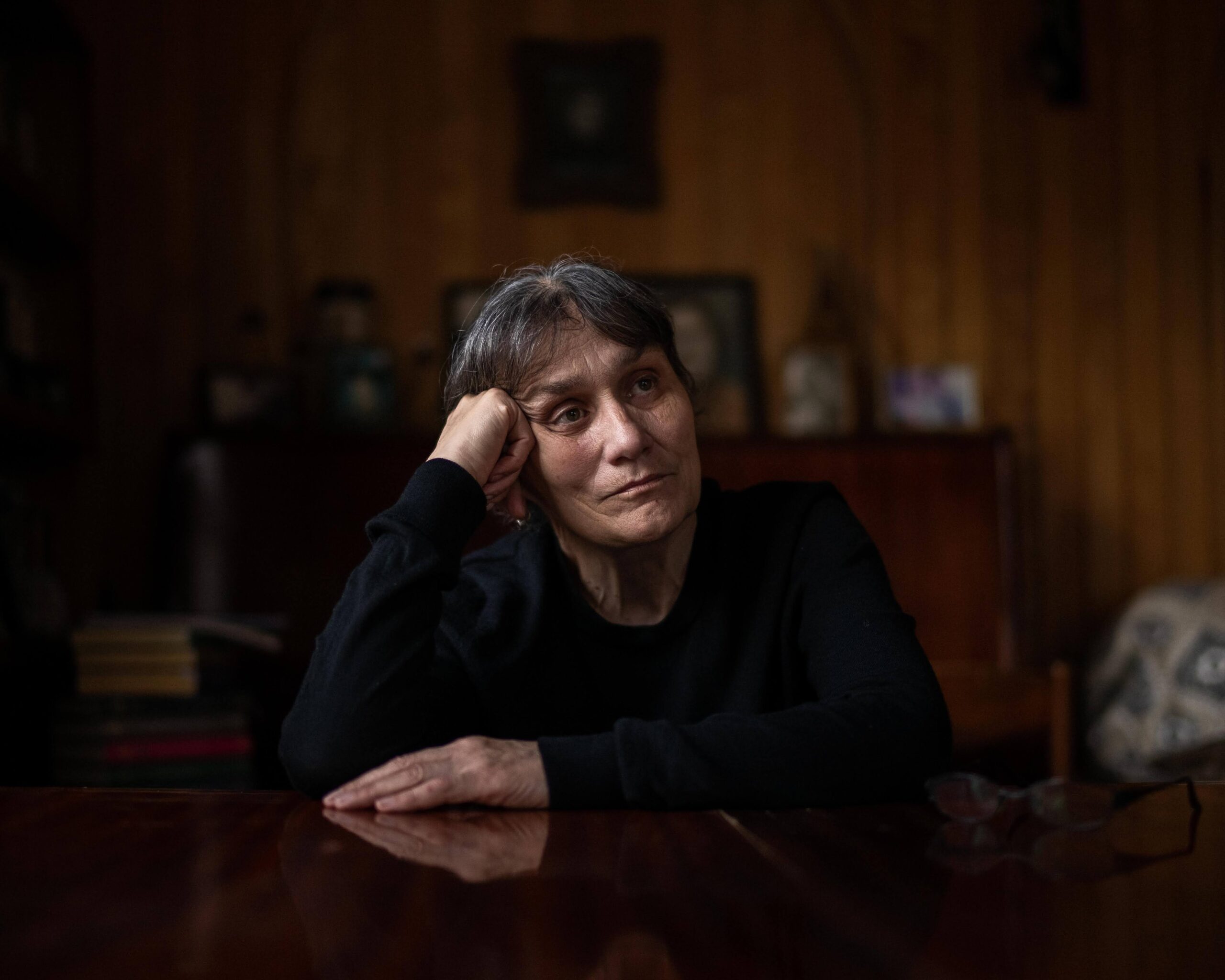
Indeed, opponents of planned large hydropower stations have long been concerned about the poor quality of existing stations, fears exacerbated by environmental assessment studies that environmental watchdogs have described as poorly prepared, and contracts with controversial clauses that were not made public before construction work began.
For instance, after investing in the Nenskra Hydropower Plant in Upper Svaneti, both the EIB and the EBRD admitted in 2020 that it breached various international obligations, including to indigenous peoples’ rights.
This admission came barely three years after the EBRD’s Project Complaint Mechanism determined that the Dariali HPP in northern Georgia, which it had also invested in, lacked sufficient assessment of its effect on the local environment.
Local opponents of the Nenskra and Namakhvani projects insist they have geological and geopolitical reasons to fear the dams’ collapse, with Russia’s destruction of Ukraine’s Kakhovka dam in June 2023 on the minds of many Svans.
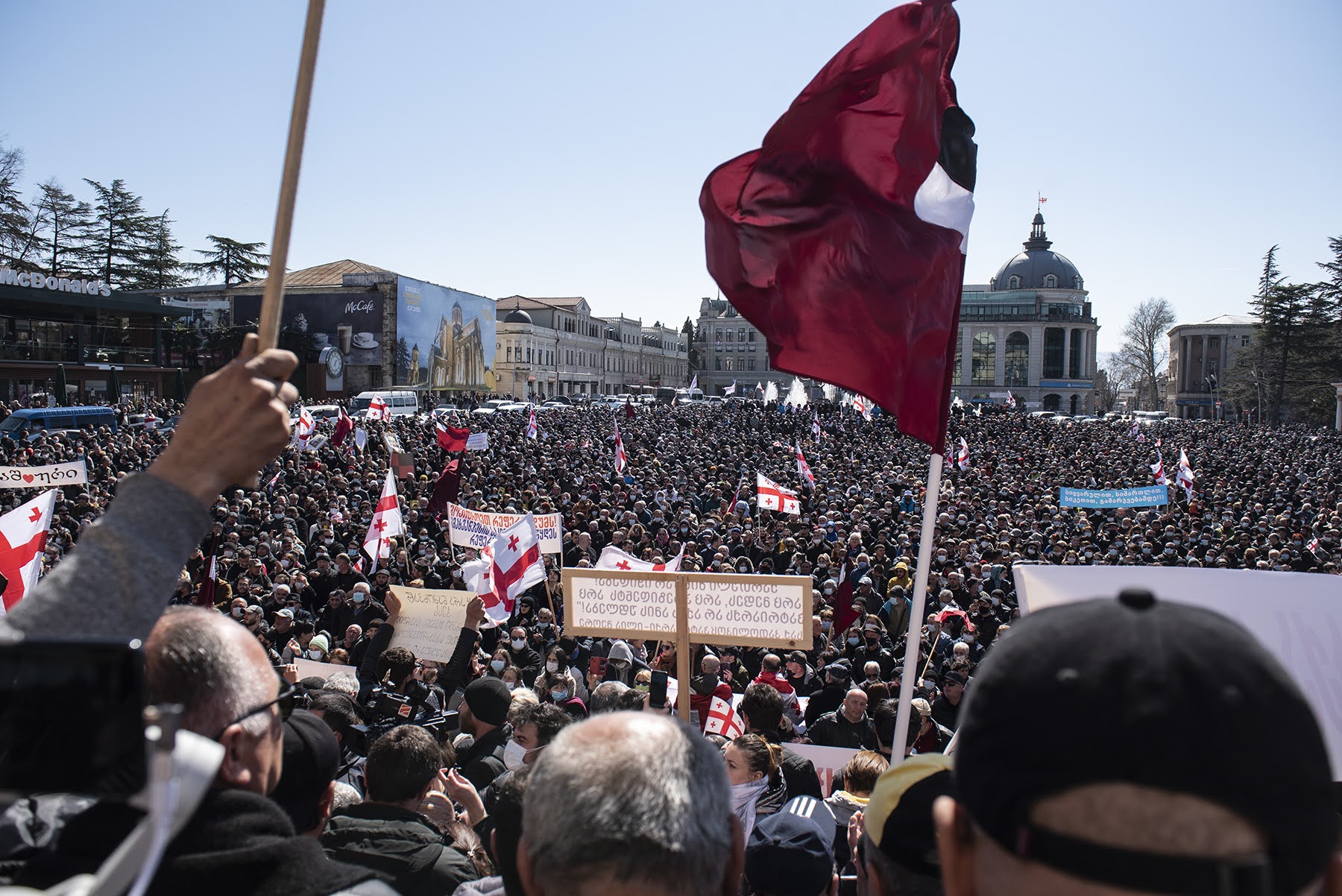
‘How can we know what [Russia] might drop here one day? There’s occupied Abkhazia on one side, and Russia on the other’, says Subari, adding that she would not be able to evacuate even the school if the Nenskra dam collapsed, let alone Chuberi’s 1,000 residents.
Mestia-born Magda Guledani, the face of the 2018 anti-Mestiachala HPP protests, voices similar concerns.
‘We don’t need the construction of such massive dams in Svaneti because our northern neighbour is not exactly friendly to us. We’ve all seen recent developments in Ukraine’, says Guledani. ‘Are we insured against something similar happening to us?’
Dato Chipashvili from the Georgian environmental group Green Alternative repeats these concerns, noting that Nenskra is just 10 kilometres from Abkhazia.
‘Who can guarantee that […] the Russians will not come in, move the border, and Nenskra ends up on the Abkhazian side?’, he asks.
Wanting the best for their country
Those fighting against the development of HPPs have faced significant pushback, with activists stating that they have been dismissed, demonised, and pitted against each other by businesses and the government, as well as being misrepresented in national media.
‘Our village had demands. We wanted to see benefits, some development’, says Nato Mdivani, of the village of Sgurishi in Svaneti. ‘We would consent to [a smaller HPP] if our village and its future would benefit from it.’
But Georgian liberal and pro-Western groups have broadly failed to lend their support to HPP protest movements, with the anti-Namakhvani Saving Rioni Valley movement losing many of their remaining supporters after condemning Tbilisi’s Pride Week in the summer of 2021.
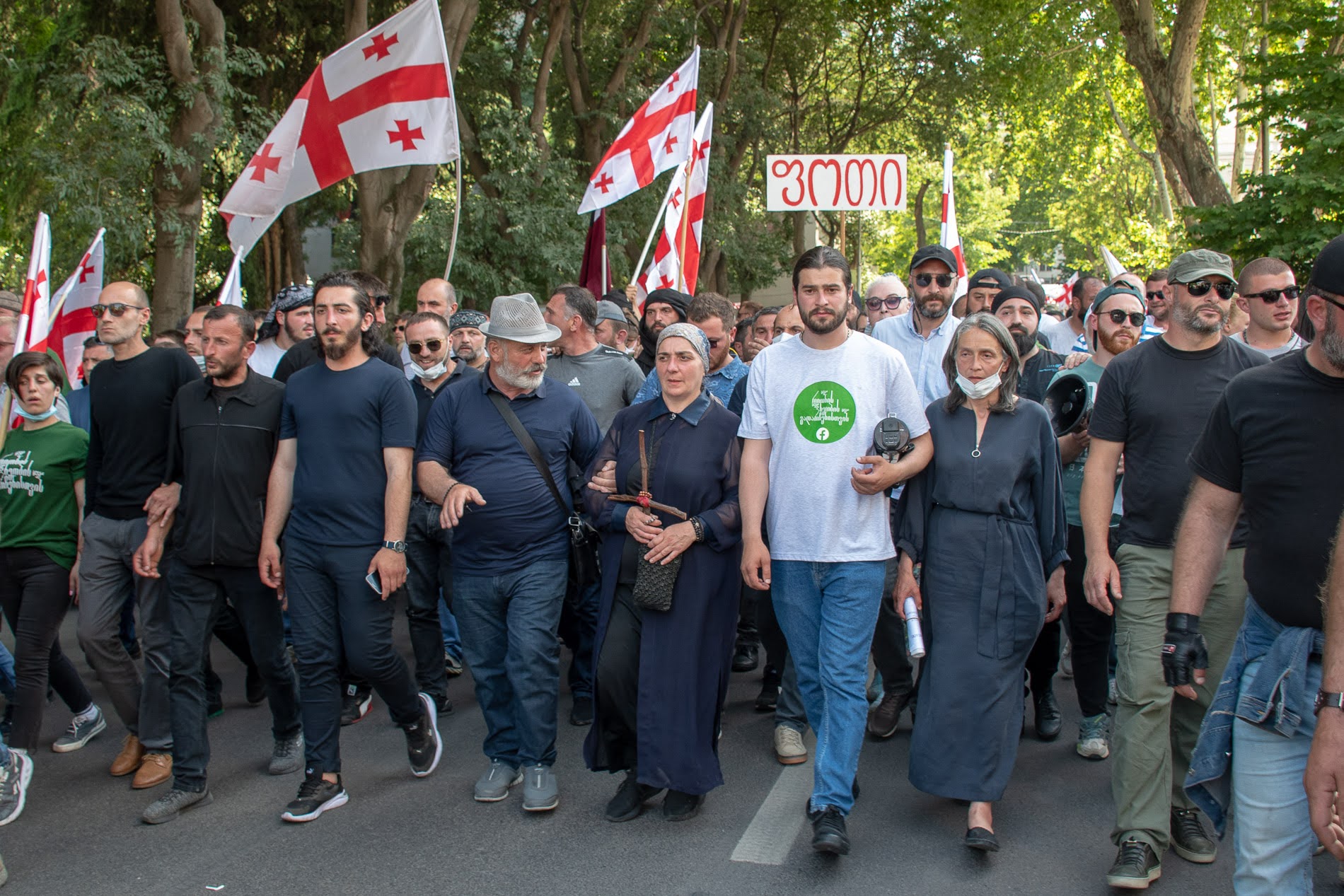

Public homophobic statements only worsened their public image, which had previously suffered from accusations of harbouring anti-Turkish sentiments based on their objection to the work of the Turkish company Enka on the Namakhvani dam. They were also accused of acting against Georgia’s energy independence.
Many have gone further, and accused the protesters of being organised or funded by Russia.
The United National Movement (UNM), the former ruling party and main rival of the Georgian Dream government, is amongst the organisations that have expressed distrust towards the movement. Tsiskarishvili, the party’s secretary general, stated that Russia is ‘the usual suspect’ in both organising and funding the activists.
‘I mean, who [else] could be the force and the financial resource provider for […] such rallies and protests?’, he asked.
GREDA’s Giorgi Abramishvili concurs. While he allows that ‘95% or 98% […] are honest protesters’, he insists that the protests were part of a campaign by Russia to spread disinformation about HPPs.
Such claims were repeated by ruling party representatives in the campaign for the foreign agent bill, which aimed to oversee civil society organisations that received foreign funding.
Before the highly unpopular bill was eventually withdrawn, Georgian Dream party members cited the Saving Rioni Valley movement as an example of a campaign supported by NGOs that they insisted served Russian interests to the detriment of Georgia’s energy independence.
But campaigners insist that a lack of love for their country is the last thing they can be reasonably accused of.
‘If the state convinces me that my sacrifice would benefit my country and my relocation from my land would bring something good to it, I am ready to give up on it’, says Maka Suladze, one of the leaders of the Saving Rioni Valley movement.
‘I wouldn’t even seek compensation, because I would be happy just knowing that I did something good for my country’, she adds.
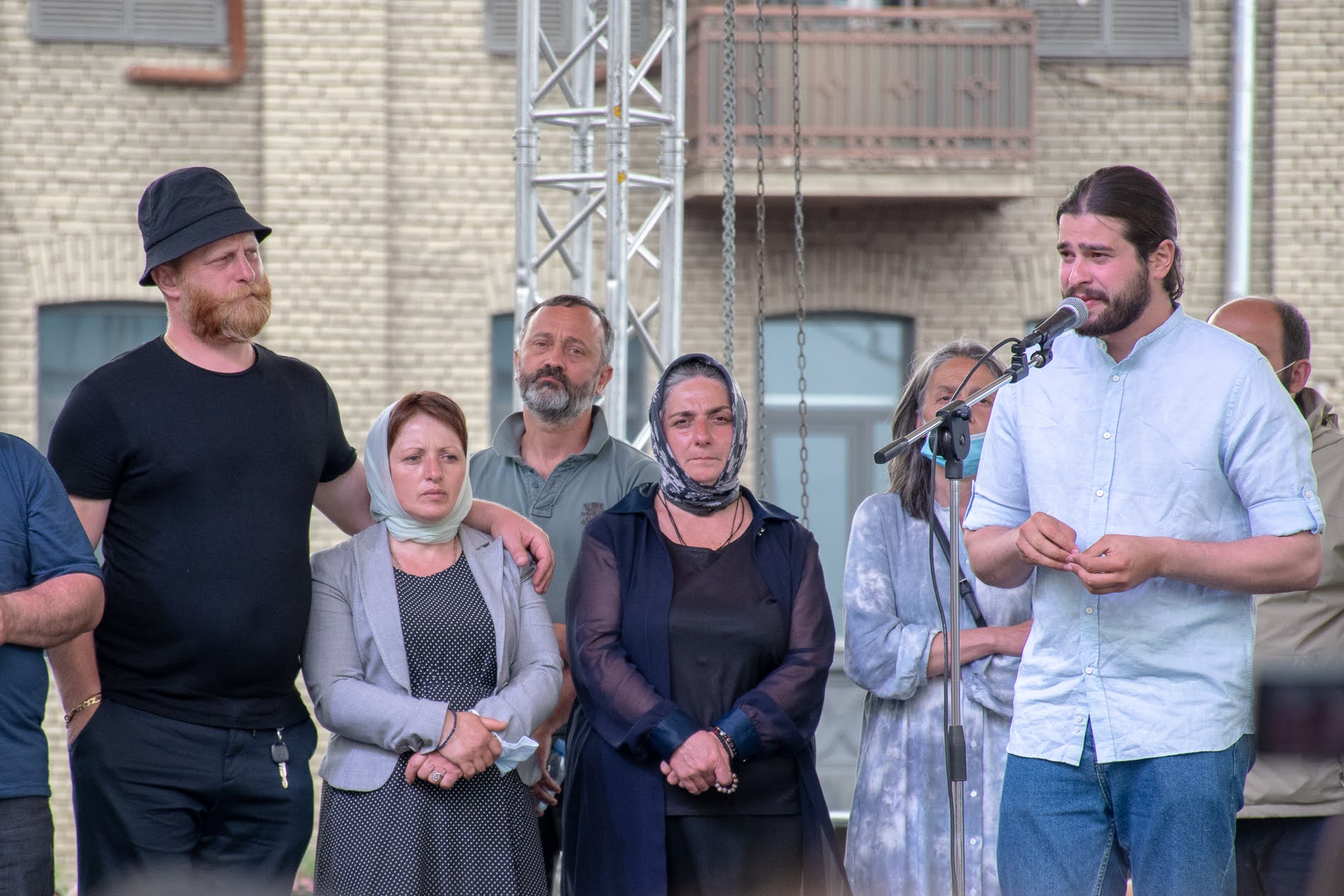
But many in the region say that instead of assuaging the doubts of protesters or taking their views into account, underhand tactics were used to divide and punish locals. They say that some were compensated for their land while others were not, while a number of protesters were arrested.
Nato Mildiani, of Sgurishi, a village in Svaneti, confirms this.
Mildiani used to represent her village in a committee aimed at discussing and overseeing the implementation of Nenskra HPP with representatives of the municipal government and construction company. But she says she struggled to get specific plans and estimates on the promised benefits her village would receive, and that the local government often ‘took the company’s side’.
She adds that Nenskra Hydro, the company responsible for the project, compensated only some of the pasturers whose land was set to be used by relocating their camps and annually providing them with hay, while others were disregarded.
Erekle Goshuani, a shepherd based in the Mashrichala Valley, also claims that Nenskra Hydro candidly paid some locals to influence public opinion, as they acted as neutral mediators with the local population.
‘It has divided the villages. It went badly. You know… it was like — someone was getting paid, some were not and ended up with nothing’, says Goshuani.
Maka Suladze claims that in other cases, when the company was unable to achieve its aims, it took to direct action.
Suladze says that she was the only person in the village of Mekvena, Lechkhumi, who did not give up her land and house in exchange for compensation in 2015.
Soon after, she says, her house ‘mysteriously’ burnt down.
‘It eventually only motivated me to rebuild my house […] and prove this way that I didn’t give up’.
Khaishi’s Zurab Nizharadze claims he and others mobilised and didn’t allow a precedent to be set in their community for selling their land and houses to the company.
‘Even if you gave me a million, I would not give up this place’, he adds, referring to the house in Khaishi that he says was built by his grandfather.
But many local people were promised not just money, but improvements to their quality of life. Almost all of the HPP projects promised improvements to local infrastructure, but the delivery has been lacking, and many people in Upper Svaneti have seen little progress on that front.
Gia Vibliani is one of seemingly few people in Svaneti who are willing to be vocally supportive of the Nenskra HPP. After having been involved in its construction for several years, he bet his financial resources on it by building a guesthouse near the dam planned in the Mashrichala locality.
He says he considered the HPP a good idea, because he believed that local people would get jobs and local infrastructure would be ‘fixed’.
‘We have mountains and pasturing lands here; a local farmer would have an opportunity to sell his product to tourists’, he says.
He says he is unhappy that the work has been put on halt.
‘Everything has stopped, nothing is happening in the village, there are no jobs’.
But those who were involved in the work state that, even prior to its being put on pause, promises regarding jobs, infrastructure, and compensation were not being delivered on.
Erekle Goshuani says he worked on constructing roads for the Nenskra project in 2019 and 2020, before returning to his summer pasturing camps, which he describes as being left ‘half-destroyed’ by the project.
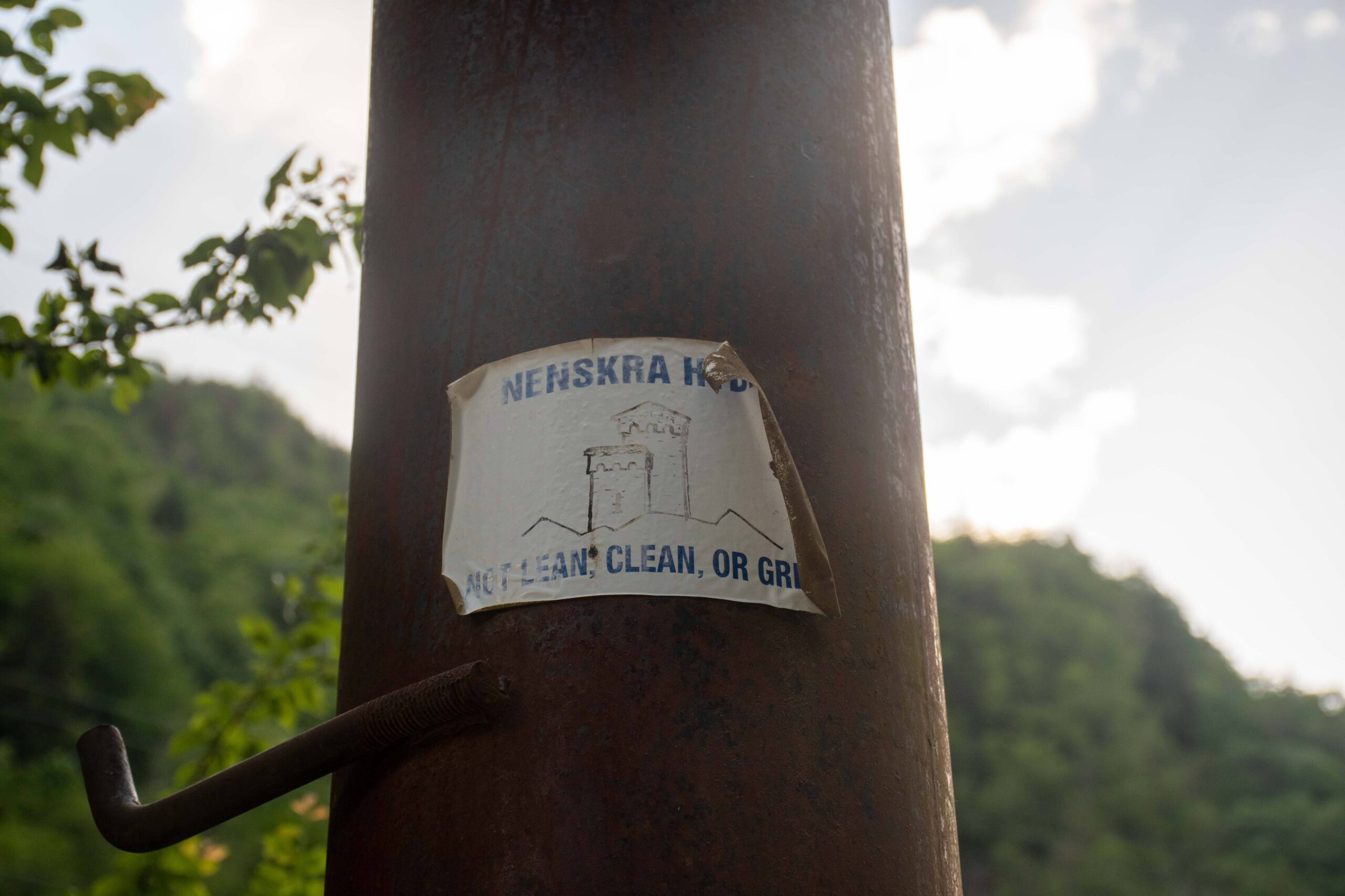
Goshuani says Nenskra Hydro failed to honour its commitment to build a road to an alternative area of pasturing for 33 local residents in exchange for using their former pasture to station warehouses for a seven-year period.
Additionally, Goshuani claims that the Georgian Construction Consortium (GCC), a subcontractor, did not even pay them salaries for their three months of work.
‘Each time we called them and demanded our salaries, they redirected us to somewhere else, but at some point everyone was gone and nowhere to be found’.
Goshuani adds that the former workers were never given a copy of their 2019–2020 employment contracts.
Growth, change, and room for compromise
Since the launch of the protest movements in Svaneti, some of the activists’ aims, priorities, and approaches have changed.
In 2020–2021, the government responded heavy-handedly to the Saving Rioni Valley movement, dismantling their protest tents and, on some occasions, restricting movement in the region and arresting protesters, alarming human rights advocates.
Lately, local activists began to take a new approach: holding an annual festival to ‘save’ the Tvishi vineyard, threatened by the construction of the Namakhvani HPP, and lately also campaigning against the privatisation of forests in Racha, a region north of Lechkhumi.
[Read more on OC Media: Local voices were ignored in the auctioning of Racha’s forests | Opinion]
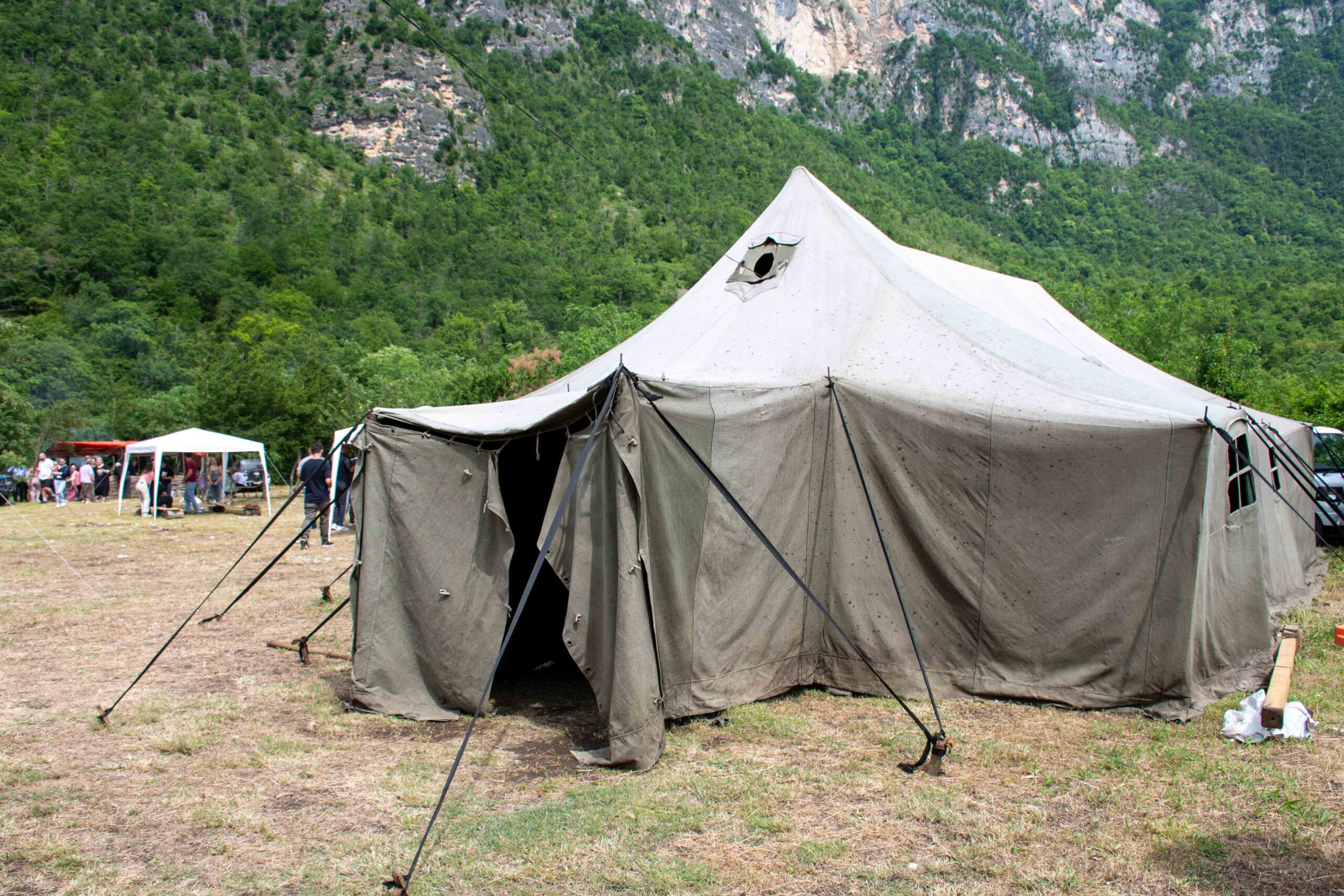
Others have come to believe that the construction of HPPs might be viable if implemented with sensitivity to the local context.
Some local opponents of hydropower stations in the region say they are open to the idea of less disruptive projects that would less drastically affect local habitats and tourism.
‘If giant HPPs are built here, then we’ll probably be hurt a lot. Little, micros [smaller HPPs]… maybe, but not big ones’, says Nato Mdivani in the village of Sgurishi, Mestia Municipality. Her village has been affected by the preparatory construction work of Nenskra HPP.
For Chuberi-based Nato Subari, local nature being left ‘entirely untouched’ by development projects would be an ‘ideal scenario’. However, she grants that while she would never agree to a big dam, alternative, smaller projects could be a reasonable compromise.
Thirteen kilometres south of Sgurishi, in the village of Khaishi, Zurab Nizharadze voices a similar sentiment.
In contrast to previous years, 56-year-old Nizharadze seems relatively hopeful now. After announcing the government’s renewed commitment to building the Namakhvani, Nenskra, and Khudoni projects, Prime Minister Irakli Gharibashvili promised in February to ensure that Khudoni was ‘modified’ so that it does not flood Khaishi.
Such compromises aside, GREDA’s Giorgi Abramishvili believes that much of people’s feelings around ‘smaller’ hydropower projects come down to communication strategy. He suggests that while advocacy and watchdog groups claim they welcome compromise, in practice, they refuse all hydropower projects that are suggested to them.
‘When you ask [them] for the criteria for a “good” project […] it’s a deadlock’, says Abramishvili. ‘They have no arguments’.
Green Alternative’s Chipashvili says on the subject that he has struggled to find a good-practice hydro-project implemented in Georgia.
Murman Margvelashvili, director of Tbilisi-based energy-focused think-tank World Experience for Georgia (WEG), similarly admits that poor construction quality is a factor in people’s objections to the construction of HPPs in Georgia.
However, he claims that there is little room for ‘rational’ discussions of the possible benefits of HPPs, due to what he describes as ‘environmental extremism’, which he defines as ‘defending the environment at all costs, even at the cost of your country’s interests’.
‘ “Hydropower is dangerous”, “all dams fail”, “all progressive mankind is giving up on hydropower”… There are a lot of myths deliberately spread in the communities’, says Margvelashvili.
For Rekhviashvili, there’s another important side to this issue. She says that smaller HPPs are often built by local small entrepreneurs, but with no central oversight.
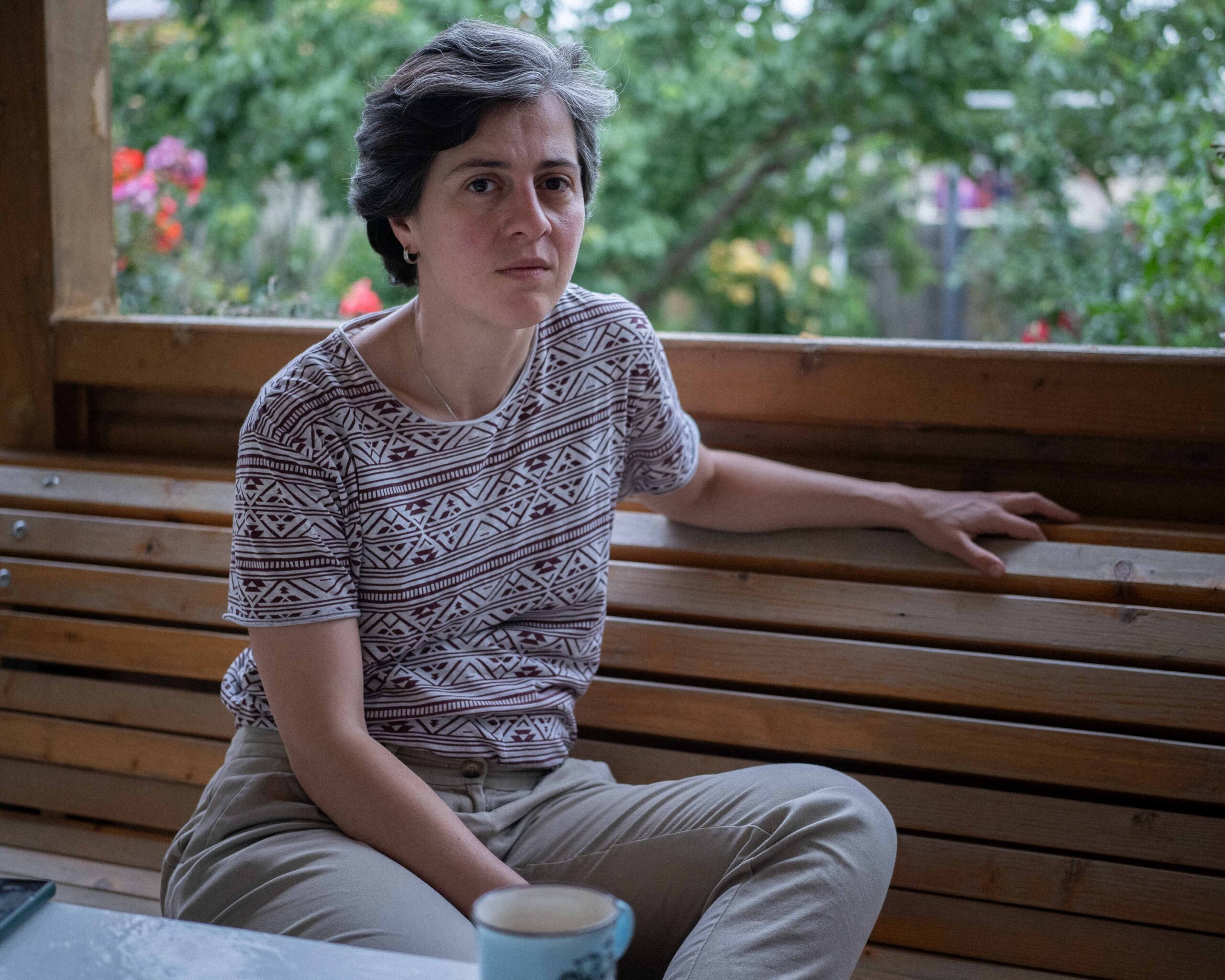
‘Essentially, everywhere where the water flows, they go and build tiny hydropower plants, which doesn’t solve any [national] energy problems’, says Rekhviashvili. ‘[The government] don’t even ask for environmental impact assessment or anything, so that means that all Georgian valleys are impacted and damaged for no good reason whatsoever’.
In any case, for many of those leading the protests, to make the discussion a purely ‘rational’ discussion of economics and energy is to dismiss both the lives of those set to be affected by the HPPs’ construction, and the direct and indirect value of their natural surroundings.
While GREDA’s Giorgi Abramishvili claims that ‘with Svans, it’s always about money, not about nature’, accusing the people of the region of unconstrained deforestation, the reorienting of the Saving Rioni Valley’s campaigning aims in recent years suggest the contrary.
Extending their support to those campaigning against the privatisation of public forest in Racha, as well to striking workers at the Azoti factory and in Chiatura, the campaigners have reaffirmed their commitment to a core value of their movement: defending the rights of ordinary Georgians against businesses seeking to exploit them, and a government that prioritises financial interests over the wellbeing of its people.
For Maka Suladze of the Saving Rioni Valley movement, the Namakhvani project has hung over her, her family, and the lives of others in her region for almost all of her life.
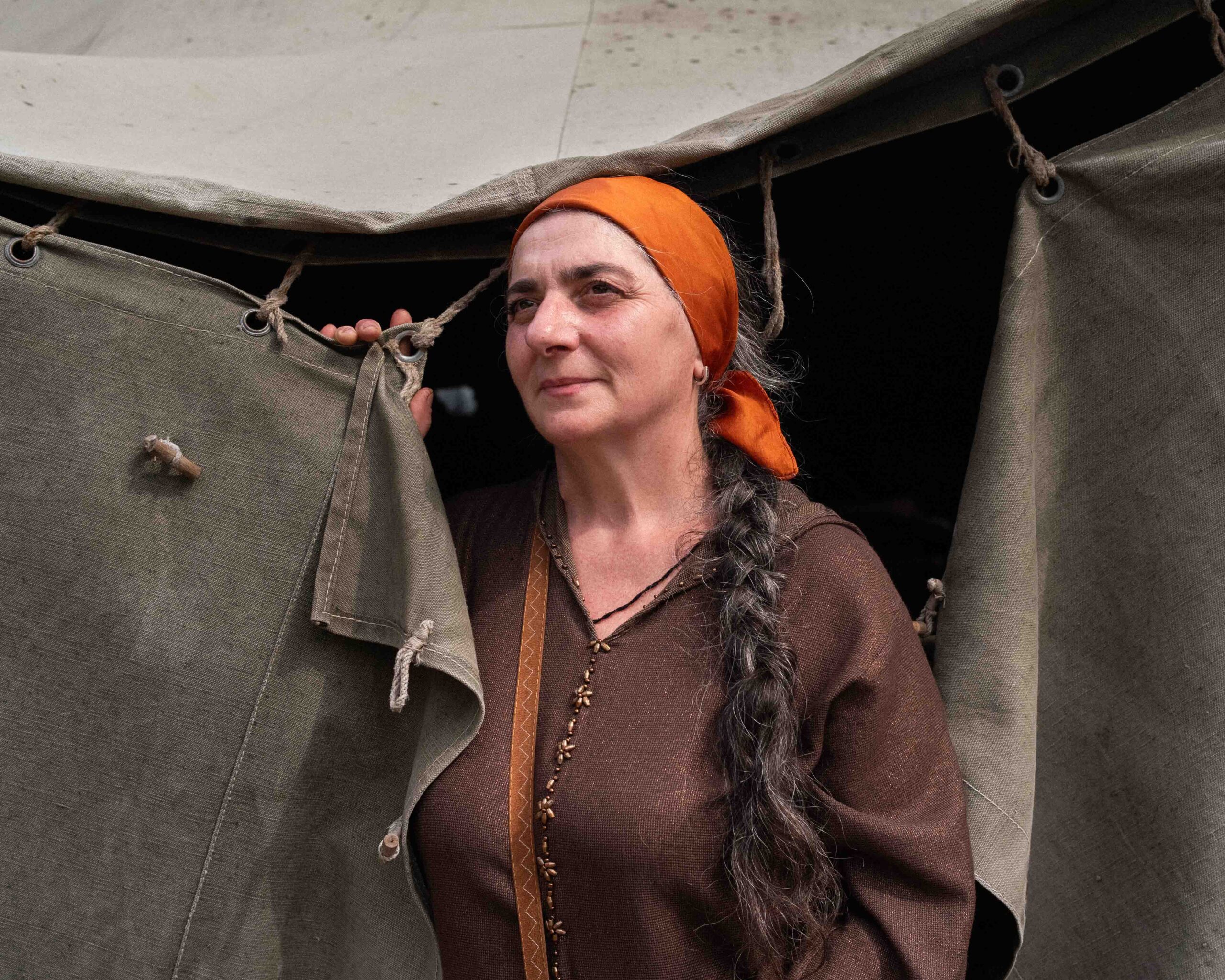
‘From as early as I can remember, an expectation that it could be built plagued my family’, says Suladze. ‘A suggestion to relocate the grave of my deceased brother was very sensitive for my parents. Naturally, it was a very painful topic for me too’.
Guledani similarly makes clear that it’s not a question of money, but of people being able to continue living in the region, both her generation and those yet to come.
‘I am Svan, and you bet I plan to return to Svaneti. Don’t I have a right to live normally? I don’t ask for any help from the government […] only not to harm anything in Svaneti, to let me live there in Svaneti free from ecological damage’, Guledani says.
‘It really breaks my heart because we’re basically defending ourselves from our own government to ensure the Svan population remains in Svaneti instead of fleeing because of HPPs’.
Ula Idzikowska and Marek Kowalczyk have contributed to this story.
The article was made possible with the generous support of Journalismfund Europe.

